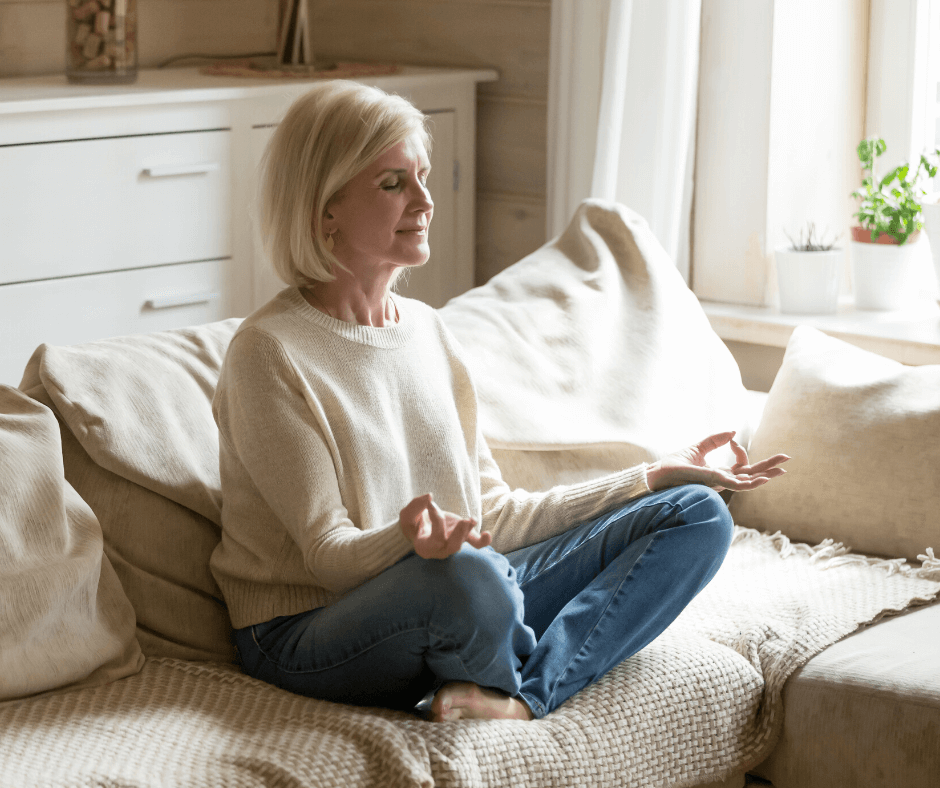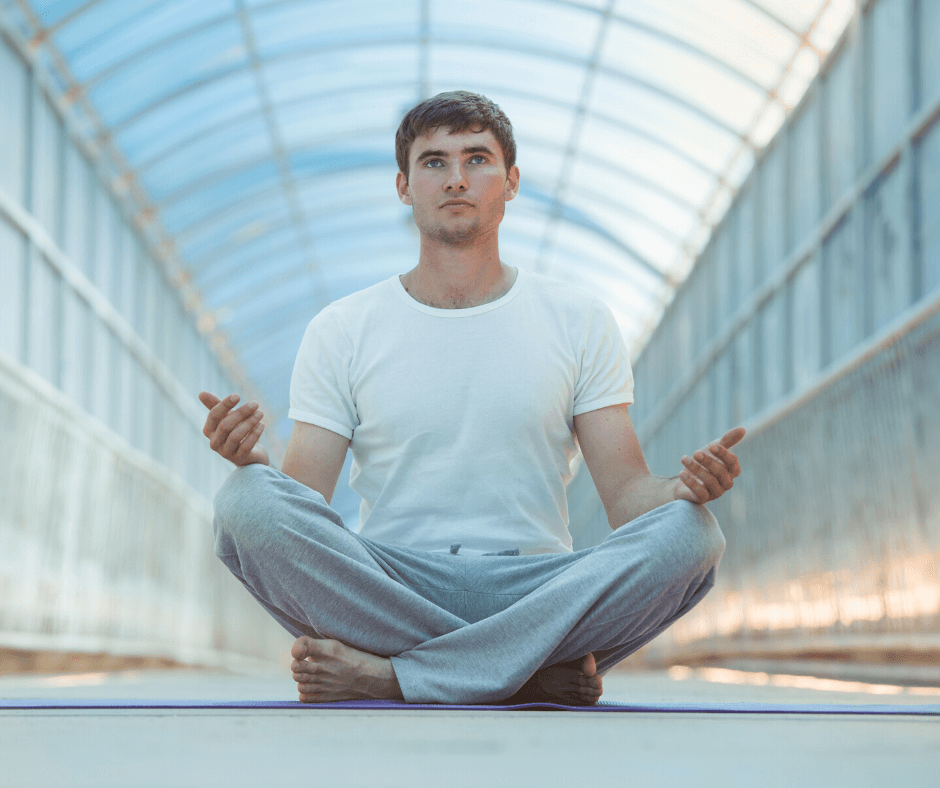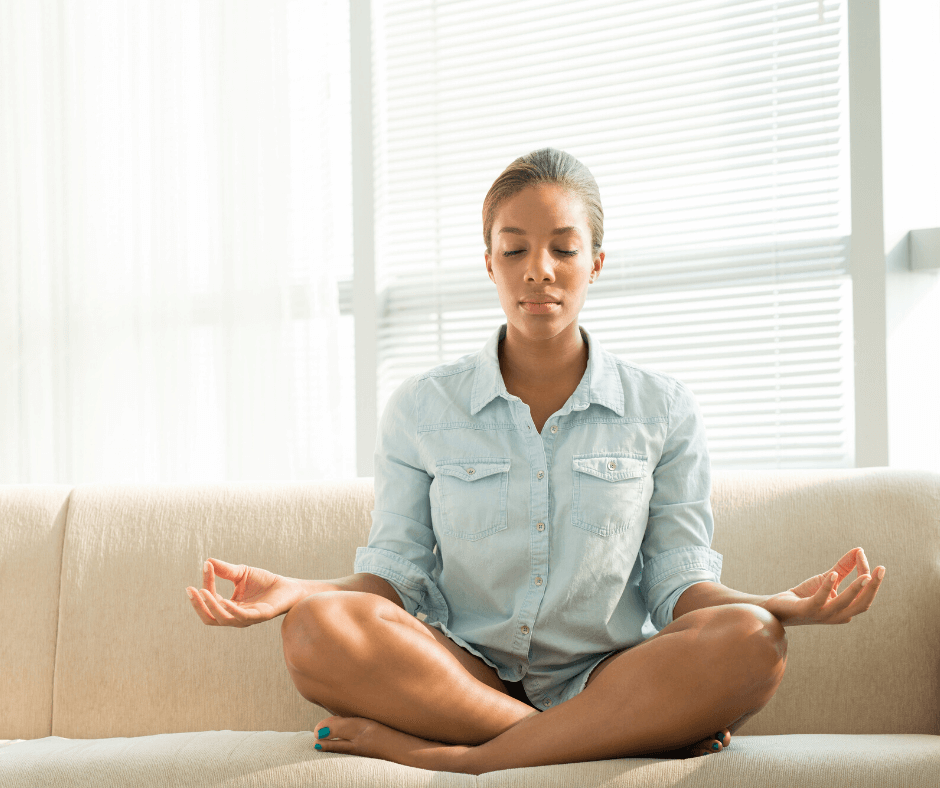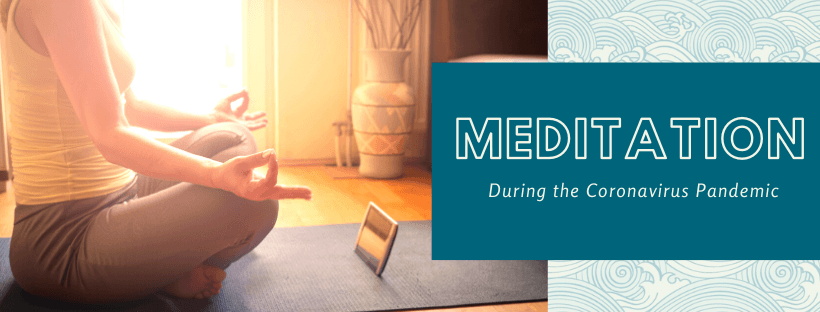Right now we're constantly being updated – some would say barraged – with dire news about the ever-evolving coronavirus pandemic. There's so much uncertainty. Most of us have experienced a complete disruption to our daily routines. We're sheltered at home and possibly dealing with the loss of a loved one or a job. It's a lot to take in, so it's not surprising that many people are feeling anxious and stressed.
So what can you do to cope with the uncomfortable feelings that are likely swirling around in your mind and heart right now? Meditation is one option that takes little effort but can pay big dividends in reducing your body's stress response.
"Meditation is a quieting of the mind, so that you can attend to or pay attention to what is going on in your mind," says Maryanna Klatt, professor of clinical family medicine at the Ohio State University Wexner Medical Center in Columbus. "It's taking a break from the continual mind chatter and continual partial attention we give to most things in our lives. It's not a clearing of the mind, but a focusing of the mind on something," with a focus on breath being a common theme.
The Power of Meditation
Sherry Benton, founder and chief science officer of TAO Connect, a St. Petersburg, Florida–based virtual platform that provides online behavioral health resources, says that "there's been a lot of medical research into meditation, particularly mindfulness meditation," that has shown it can actually impact physical health by reducing blood pressure and cortisol levels.
Cortisol is a hormone the body produces when under stress. Cortisol is helpful when you're trying to flee a predator, as it helps your body fight or flee. "But our bodies don't really know the difference between when we're experiencing a physical threat or a mental threat or worry," and it reacts the same in all those situations by producing cortisol, Benton says.
Therefore, the body is flooded with cortisol when we respond to emotional stress or anxiety, and too much cortisol can lead to health problems. "The more we worry and the more we fret, the more cortisol we produce, and that can lead to all sorts of problems including high blood pressure, difficulty sleeping and weight gain," Benton explains. Meditation can help reduce this excess production of cortisol and provide other mental and physical health benefits.

Meditating for Mindfulness
The term meditation is "sometimes used interchangeably with mindfulness," says Dr. Michael Brodsky, medical director for Behavioral Health and Social Services at L.A. Care Health Plan in Los Angeles. This term "refers to the ability to focus on the present moment or the here and now."
It's important to note, though, that "mindfulness is not positive thinking," Klatt says. "It's an approach that helps us wake up to the way we are really living as things are happening."
Meditation can help you achieve mindfulness, but it's not the only way, Brodsky says. "Other techniques include deep breathing, yoga and certain forms of psychotherapy." Some people also find that steady movement, such as walking or swimming can also induce a mindful, meditative mindset.

12 Tips for Meditating Right Now
Strive for just a few minutes. Benton says some people get overwhelmed by the concept of meditation, thinking that it needs to be something they must engage in for long periods of time to derive a benefit. But, in fact, "there's good research that shows just 5 minutes per day can reduce blood pressure." A little meditation can go a long way.
Try for consistency. Especially when first starting out, try to get into a daily (or even twice daily) habit of meditating. Levan recommends trying for two sessions each day: one first thing in the morning and the other in the evening or before bedtime. "Figure out the time that's best for you and make it happen." As you get deeper into your practice, try to build up to about 20 minutes each day of meditation.
Make it a habit. There's lots of small things we do each day to take care of ourselves, and Benton says meditation should be one of them. Think of it as a daily self-care habit, much like brushing your teeth. "You wouldn't go a day without brushing your teeth," at least once and probably twice. So why would you skip a day of meditation she asks.
Keep at it. Getting comfortable with meditation takes some time. "Meditation is a journey," Levan says, and "like any other habit you have to do it for 21 days to make it a habit. Create a reminder" to practice every day, and it'll eventually become just part of your everyday routine.
Look to guided meditation. Though you can meditate anytime, anywhere, with just a little bit of quiet attention to breath, often it's helpful to use a guided meditation to jump-start your practice. Many different providers are offering free access to guided meditations, including TAO Connect and OSU.
Try a moving meditation. Though the term meditation often conjures up images of yogis sitting for hours in the lotus position, meditation can actually involve plenty of movement or exercise. Yoga, tai chi, even just a simple walk in the woods can all help you foster more mindfulness and a type of meditation.
Find a quiet corner. "The widespread stay-at-home orders can make it challenging to find a perfect time and place for solitary contemplation," Brodsky says, but ideally, "beginning meditators should find 3 to 10 minutes in a quiet place to sit with eyes closed, either on the floor or on a comfortable chair. Absolute solitude is not needed. In fact, occasional sounds and smells can help beginners learn to tolerate minor distractions while remaining focused."
Get comfortable. Benton recommends sitting or lying in a comfortable position. Make sure you're in comfortable clothes that allow you to breathe freely. "Put all of your focus on your breathing and try to stay in that space, focusing only on what's happening right here, right now – the smells, the sounds in the room."
Don't worry about stuff. Levan adds that you don't need a lot of stuff to meditate. "You don't have to surround yourself with crystals or incense or twist yourself like a pretzel." It's about just taking a quiet few moments to yourself to focus on your breath.
Foster mindfulness via yoga or tai chi. "Some people will find it easier to focus during structured movement like yoga or tai chi," Brodsky says. Sometimes incorporating some gentle movement into your practice can help you achieve a deeper calm.
Limit your media consumption. Levan says that during this crisis, one thing you can do for yourself that may help foster more mindfulness and calm is to limit your consumption of news media. "With so much noise going on, I ask folks to limit their time on social media and TV and all the news that's pounding away and creating a lot of fear and stress. Limit it to two blocks of 15 minutes to find out what's going on," and then shut it off. Endlessly scrolling for updates only adds to your anxiety level.
Write down thoughts. If you're trying to meditate and certain thoughts pop up that seem important, go ahead and write them down. "Don't fight it. Just write it down, then take a deep breath," Levan says. Refocus on your breathing. You'll get better at letting thoughts come and go while meditating.
Susie Levan, a life coach, author, meditation teacher and reiki master based in Florida, says that though many people might be daunted by the idea of meditating at first, "it doesn't have to be complicated."
And though some people think it's about tuning out, that's actually backwards, Levan says. "It's not about zoning out, it's about zoning in. It's training your mind to connect with your breath. We have 60,000 distracting thoughts every single day," and when panic and fear creep in, those thoughts can run away with your emotions.
Meditation is not about clearing your mind, Levan adds, it's about learning to make peace with those unsolicited thoughts.

Why You Should Meditate Now
"People are understandably worried about current events and what the future will hold," Brodsky says. "Because of these fears, it has become difficult to stay focused on the people and tasks that we interact with in our everyday lives." But this preoccupation with the uncontrollable and the future have been proven to "reduce our overall sense of well-being and happiness," he adds.
Therefore, to keep from spinning out in this crisis of extreme uncertainty, meditation and coming back into the moment can help.
This means focusing on "the to-do list we have to complete, the conversations we have with friends and family and the hobbies and diversions that we pursue in our free time," Brodsky says.
In this crisis, there's not much we can control. But the things we can and should do include:
• Staying home to help flatten the curve.
• Wearing a mask when we do have to go out in public.
• Washing our hands frequently and disinfecting high touch areas regularly.
• Focusing on the things we can control, such as our day-to-day activities.
• Making time for the things that really matter, such as spending time with family members.
• Telling our loved ones that we love them, even if we can't see them in person.
• Staying mindful and in the moment.
• Meditating to help alleviate the stress.
"This crisis is an opportunity to try something new and just notice if it seems to resonate with you on some level," Klatt says. "Give it a try – you may be pleasantly surprised."
"Meditation has been my super power," Levan adds, and it can be yours too with just a few minutes a day of consistent practice.
Article Source: https://health.usnews.com/wellness/mind/articles/meditation-tips-during-the-coronavirus-pandemic
Author: By Elaine K. Howley, Contributor

Garth Reynolds, MSTCM, L.Ac.
Licensed Acupuncturist and Clinical Herbalist | Schedule Your Appointment
Martial Arts Instructors with Bagua Internal Arts | Local & Online Classes Weekly
#Meditation #Mindfulness #SelfCare #StayHomeStayHealthy


